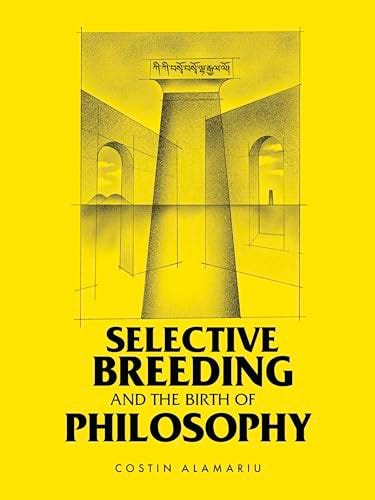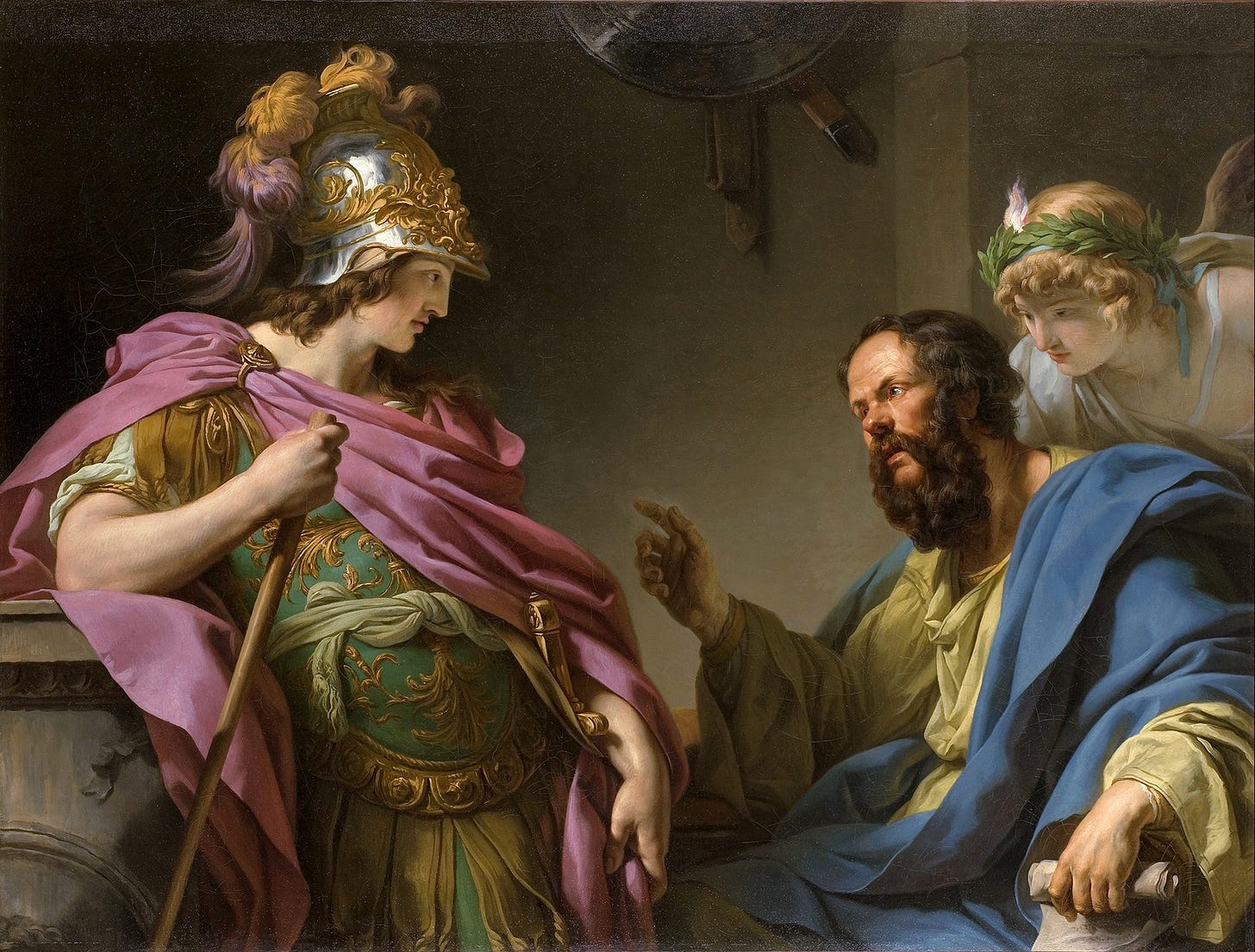BAP’s dissertation argues an ostensibly narrow point: that Socrates had it coming.
The execution of Socrates is usually characterized as the persecution of an innocent free-thinker, but BAP says that Socrates (and the teaching of philosophy as such) had radicalized the Athenian youth toward antinomian tyranny — the throwing-off of all law and custom in favor of “the justice of nature”, that might makes right.
He traces this back to the philosopher’s discovery of nature as a concept — that there are unchangeable realities (and hierarchies) in the physical world that are outside the purview of law, or custom, or even the gods.
The discovery of nature, in turn, emerged as a consequence of an aristocratic breeding program: a quest by conquering minorities to hone themselves, as individuals, into the most physically and psychologically dangerous human specimens. BAP explores the Greeks’ obsession with blood, heredity, nature, and the trial of one’s nature in the agon, the contest.
He argues that such a breeding program could only emerge in a warrior aristocracy, ruling an unrelated subject population by force, and experiencing “the pathos of distance”: a feeling of isolation from the customs and beliefs that govern the herd.
As the breeding program progresses, it begins to generate characters of such strength, will, cunning, and aloofness that they become dangerous to the integrity of their own societies.
This consummates in the person of the philosopher (who breaks free of the society’s customs psychologically) and the tyrant (who breaks free physically).
As the warrior culture buckles under the strain of its own success, and the conflicts between the dangerous men it has created, the discipline of the breeding program begins to fail, leading to a “tropical proliferation of human types” — extremely refined and competent human specimens flying off in thousands of directions, pursuing all sorts of objectives.
It is precisely in this moment of aristocratic decadence and collapse that genius and high culture are produced, as the aristocratic genius, bred for war, seeks out creative and psychological frontiers.
The aristocratic warrior culture no longer meaningfully addresses the concerns of the aristocracy — and so, in an effort to save it, the philosopher abstracts and radicalizes its principles. But this only accelerates the collapse, as it extends the pathos of distance from the weaklings and slaves among the common folk, to everything that is weak and slavish within the aristocracy.
The tyrant becomes a kind of radical “hyper-aristocrat”, treating the ruling class itself with the predatory contempt that had previously been deployed outward, toward the matriarchal communism of the peasants.
During Socrates’ lifetime, Greece was threatened by a series of tyrants, many of whom he had personally tutored. This led to the execution of Socrates, but also a general persecution of philosophers and philosophy as such.
In BAP’s view, Plato’s later invention of “moral philosophy” — the use of philosophy to encourage justice, temperance, and prosociality — was a ruse intended to end the persecution and enthrone philosophers as the arbiters of convention and morality, displacing the priests.
This preserved the practice of philosophy and the knowledge of nature for centuries — until Christianity embraced this public-facing Platonic morality and radicalized it, abandoning the concept of nature in favor of moralizing egalitarianism. And so, in BAP’s view, the career of Platonic Christianity has been a long, slow slide back to the totalitarian matriarchal democracy of the longhouse.
Why does this matter?
BAP’s understanding of our current state of cultural decay is based on two premises:
Excellence is the only thing that justifies human existence. “Mere life” — ordinary life, survival and comfort for its own sake — is of no value, and possibly even negative value.
Excellence is purely a matter of biological material — it is inborn and cannot be taught.
I disagree with his maximalism on these points, but surely excellence matters. I don’t want to live in a world without beauty and brilliance and heroism and strength. And I don’t believe excellence is entirely a question of biology and heredity, but obviously those things count for something.
And if we agree that far, then we’ve got the same problem: our culture is at war with excellence. Not just a particular category of excellent people, but with excellence as such — with the idea that anything is better or worse than anything else.
The way we form families, our de facto breeding regime (and it is a ‘regime’, defined by culture and policy) is a catastrophe — a system as cruel and as sterile as the Spartans’, but with the effect of degrading health and vitality, rather than improving it.
But I don’t believe that waiting for the collapse and preparing our bodies for the Thunderdome is a complete solution. If Plato had just waited for Athenian society to collapse so he could join a warband, his project would have failed entirely.
Instead, he leaned into his society’s new complexity, searching out unguarded doors and looking for power that could be taken without resistance. That’s exactly what we’re trying to do with EXIT.
Also: being a Trad Dad isn’t everything, but you can’t have aristocratic breeding if you don’t breed. As far as I can tell, demographic collapse is the immediate and comprehensive threat to the survival of human excellence. I wanted to bring together smart and capable families to find solutions, which is why I started the Natal Conference.
I didn’t have a “pitch” in mind when I decided to review this book, but basically all of my projects revolve around these primal concerns — I want my kids to be excellent, and I want them to have excellent families of their own. I want them to have access to the best possible mentors, playmates, rivals, and partners — which, in 2023, makes me a dangerous extremist.
Anyway it’s a great book, and you should buy it.















